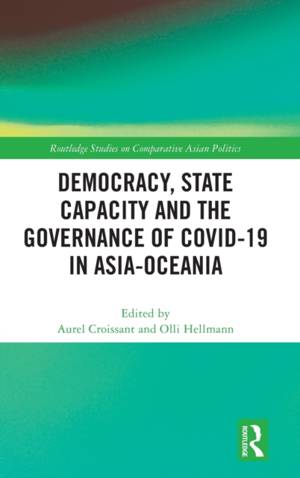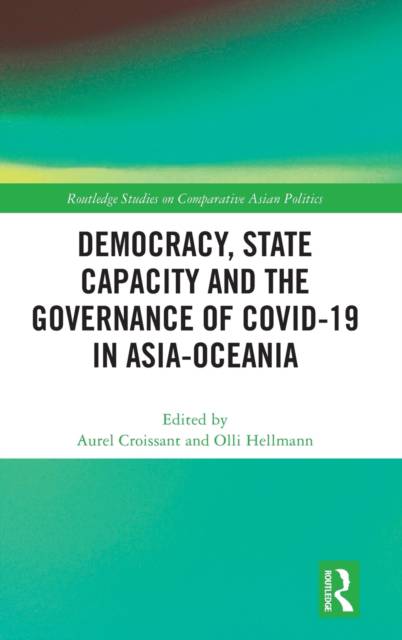
- Afhalen na 1 uur in een winkel met voorraad
- Gratis thuislevering in België vanaf € 30
- Ruim aanbod met 7 miljoen producten
- Afhalen na 1 uur in een winkel met voorraad
- Gratis thuislevering in België vanaf € 30
- Ruim aanbod met 7 miljoen producten
Democracy, State Capacity and the Governance of Covid-19 in Asia-Oceania
Omschrijving
This book examines the public health responses to the COVID-19 pandemic in the Asia-Oceania region and their implications for democratic backsliding in the period January 2020 to mid-2021.
The contributions discuss three key questions: How did political institutions in Asia-Oceania create incentives for effective public health responses to the COVID-19 outbreak? How did state capacities enhance governments' ability to implement public health responses? How have governance responses affected the democratic quality of political institutions and processes? Together, the analyses reveal the extent to which institutions prompted an effective public health response and highlights that a high-capacity state was not a necessary condition for containing the spread of COVID-19 during the early phase of the pandemic. By combining quantitative and qualitative analyses, the volume also shows that the effect of the COVID-19 pandemic on the quality of democratic institutions has been uneven across Asia-Oceania.
Guided by a comprehensive theoretical framework, this will be an invaluable resource for scholars and students of political science, policy studies, public health and Asian studies.
Specificaties
Betrokkenen
- Uitgeverij:
Inhoud
- Aantal bladzijden:
- 282
- Taal:
- Engels
- Reeks:
Eigenschappen
- Productcode (EAN):
- 9781032423654
- Verschijningsdatum:
- 7/04/2023
- Uitvoering:
- Hardcover
- Formaat:
- Genaaid
- Afmetingen:
- 156 mm x 234 mm
- Gewicht:
- 589 g

Alleen bij Standaard Boekhandel
Beoordelingen
We publiceren alleen reviews die voldoen aan de voorwaarden voor reviews. Bekijk onze voorwaarden voor reviews.










